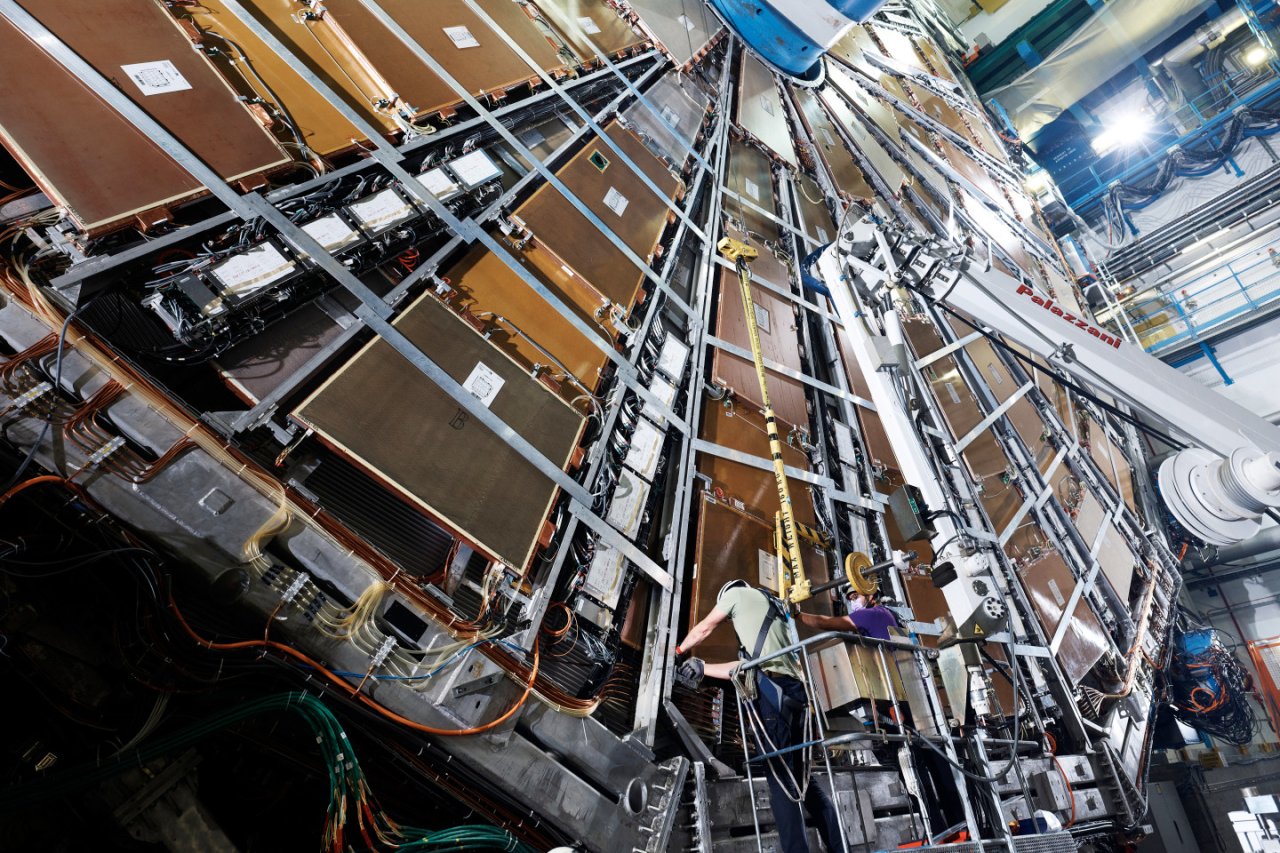Czech Physicists Contribute to CERN’s Breakthrough Prize
The Breakthrough Prize in Fundamental Physics was awarded to CERN collaborations during a ceremonial event on 5 April in Los Angeles. The prize was received by the ALICE, ATLAS, CMS, and LHCb experiments, which bring together scientists from more than 70 countries.
“The awarding of the Breakthrough Prize is a significant recognition of the fundamental research we conduct at CERN. The Czech Republic has been participating in experiments at the LHC for more than 30 years, and over that time, our scientists have contributed not only to numerous physics analyses and major discoveries but also to the development of key detector components and their operation and upgrades. The Breakthrough Prize is a form of appreciation for all those who are not afraid to engage in fundamental research – that is, science driven primarily by the pursuit of knowledge itself, where any practical application may take decades to emerge,” says Tomáš Jakoubek of the Institute of Physics of the Czech Academy of Sciences.
Representatives of the four experiments mentioned above have decided to use the three-million-dollar prize to fund scholarships for PhD students from the member states, to help nurture the next generation of scientists. The researchers were awarded for work published by July 2024, based on data from the so-called second run of the Large Hadron Collider – LHC. Thanks to the upcoming upgrades of the accelerator, its performance is expected to increase from 2030 onwards, and scientists anticipate that the High-Luminosity LHC will yield new and exciting results.
“I am extremely proud to have contributed to one of the most important measurements in particle physics in recent years – determining the properties of the Higgs boson using data from the second run of the LHC,” said Daniel Scheirich from Charles University, who works on the ATLAS experiment. “Our findings confirm that the current understanding of particle interactions is correct, and by rigorously testing these interactions, we are laying the foundations for discovering even subtle deviations that could point the way towards new horizons in our understanding of the fundamental forces and new physics,” Scheirich said.
The ATLAS and CMS experiments jointly announced the discovery of the Higgs boson in 2012, and since then both collaborations have made significant progress in investigating its properties. In addition, as general-purpose detectors, both experiments cover a broad range of other areas in physics, such as the search for new particles and the study of the properties of the top quark, dark matter, supersymmetry, or extra dimensions. Their focus encompasses both precise measurements of Standard Model processes and the search for physics beyond its current boundaries.
Katarína Křížková Gajdošová works on the ALICE experiment, which studies quark-gluon plasma – a state of extremely hot and dense matter that existed during the first microseconds after the Big Bang. “Even after many years of research, there is still much to learn about this state of matter. We are able to create it during collisions of heavy lead nuclei at the LHC. Recent measurements show that a similar medium can also form in much smaller and simpler systems, such as in collisions between two protons, which was very unexpected and surprising. I am very glad that I was able to be there at the beginnings of these discoveries, to which my measurements within the ALICE experiment have contributed.”
The LHCb experiment, among other things, investigates the subtle but fundamental differences between matter and antimatter, violations of fundamental symmetries, and the complex spectra of composite particles (“hadrons”) made up of heavy and light quarks.
“The awarding of the Breakthrough Prize for 2025 is a great honour for LHCb. It highlights the importance of the many measurements that the LHCb experiment has conducted in the field of flavour physics and spectroscopy, through the study of subtle differences between matter and antimatter, and the discovery of several new hadrons composed of heavy quarks,” said LHCb spokesperson Vincenzo Vagnoni.
FZU press release, translation OPMK




